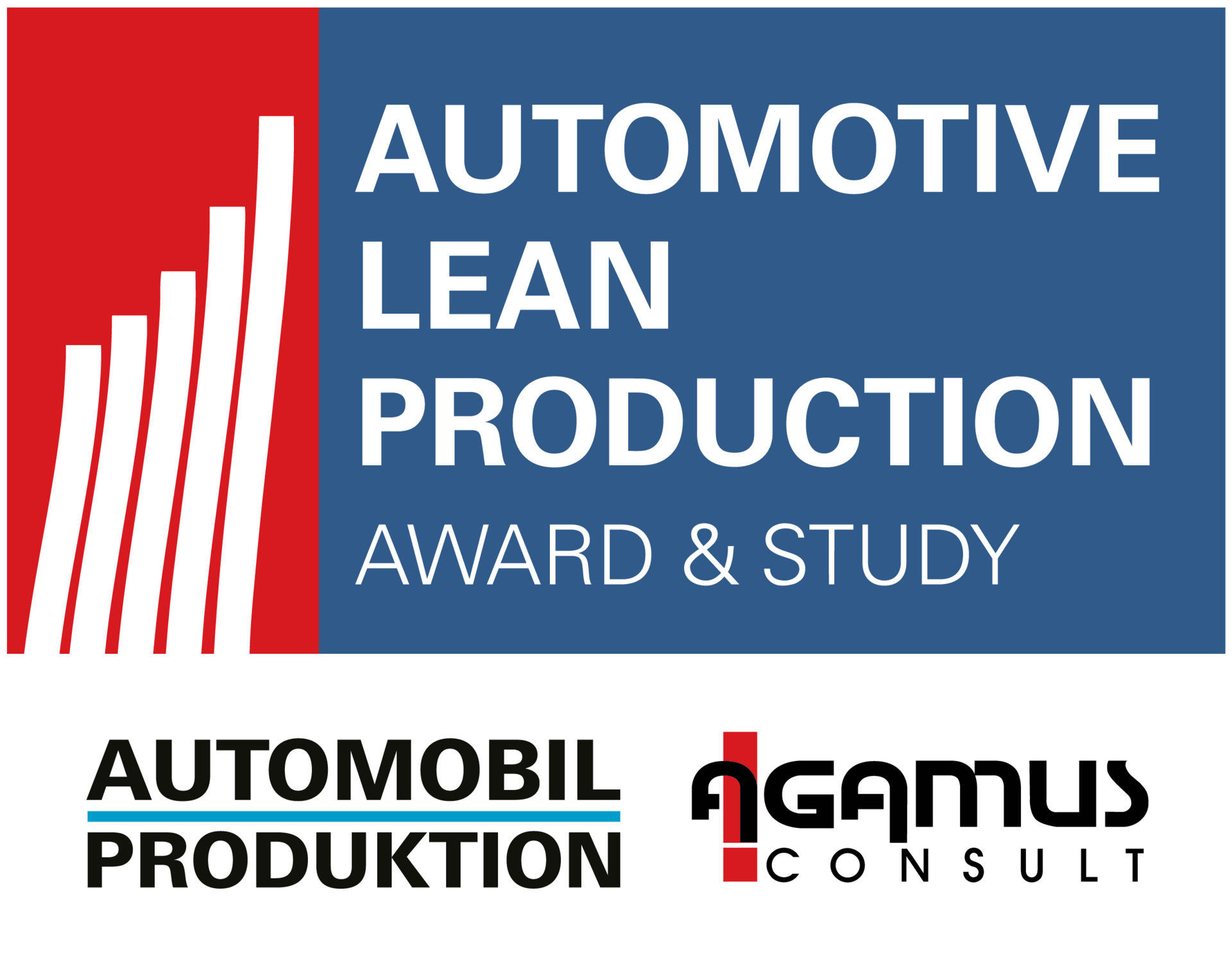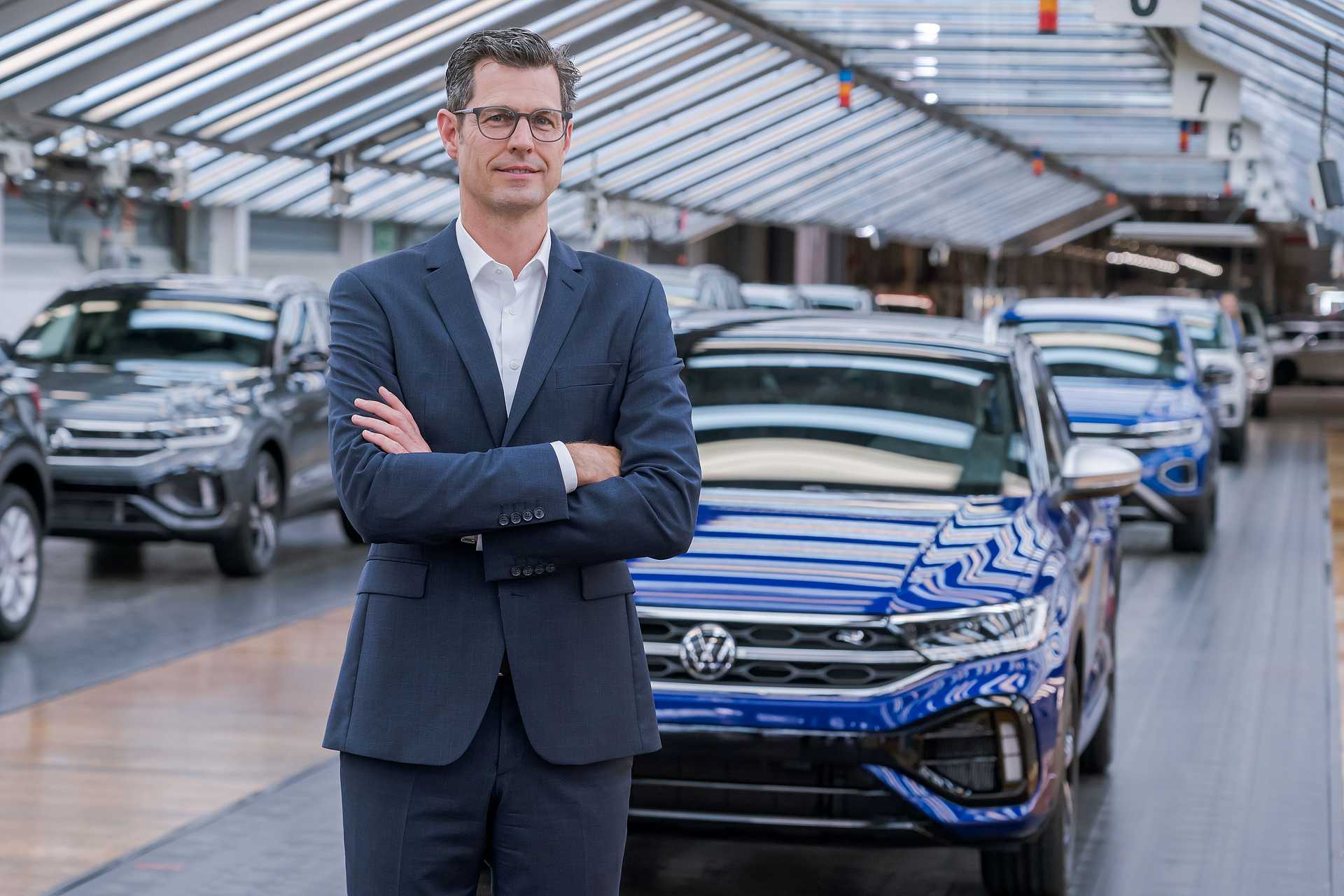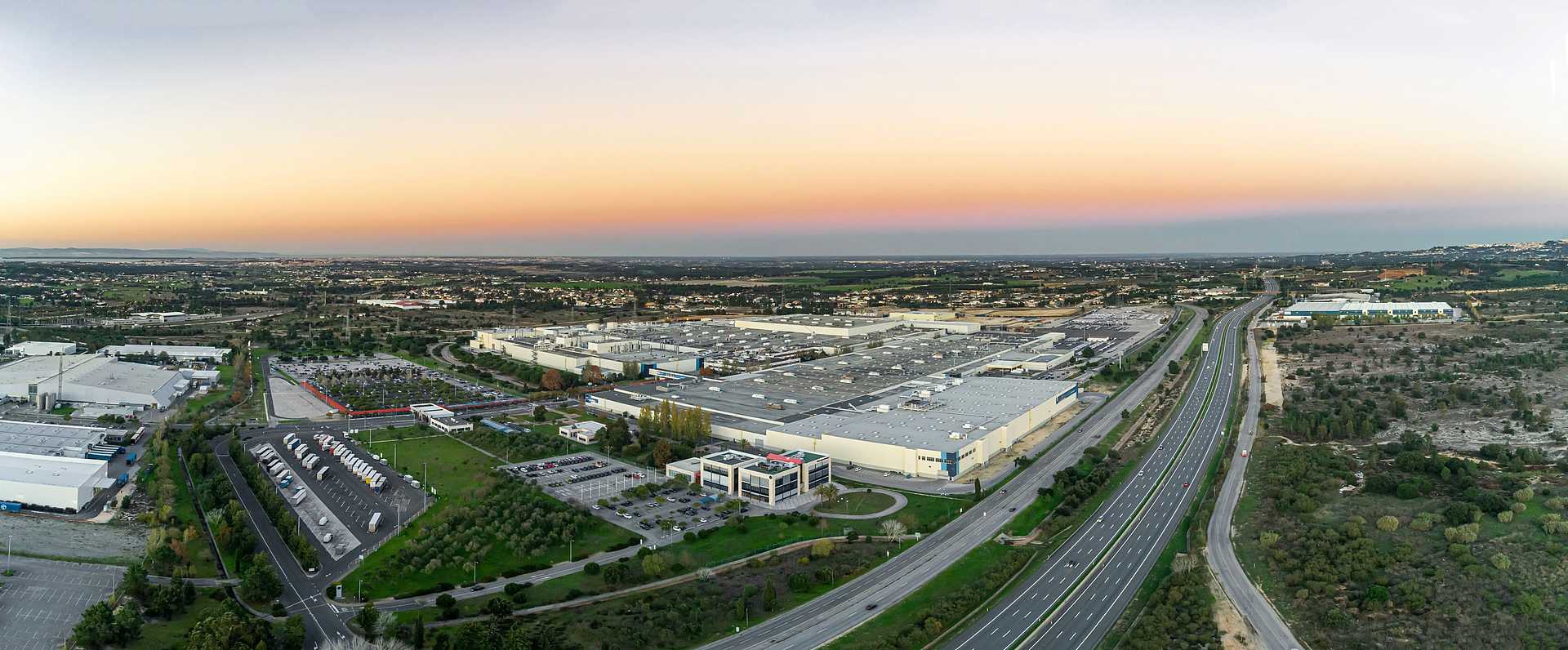Statement of the jury
The Automotive Lean Production Award in the OEM category goes to Portugal in 2023, with the Volkswagen Autoeuropa plant in Palmela standing out for its comprehensive value stream improvement, swift implementation, and numerous digitalization projects.
The plant has ambitious goals: "We are the leanest and most productive factory in the Volkswagen brand". This ambition is derived from the "Competitiveness" field of action, one of the six fields of action from the "Drive The Future" strategy. The goal is clear: to position the plant for the BEV future.
The key figures speak for themselves. Output has increased by about 10% in the last two years with a reduced number of employees.
Thanks to the strategic projects initiated by the plant management, no area has remained unchanged. This proves once again: "Lean is a matter for the boss". The Value Stream Method as a strategic design element plays a decisive role at Volkswagen Autoeuropa. The high commitment of the managers to the location, as well as their motivation and courage to implement things quickly and straightforwardly, enable a sustainable transformation.
The shift in focus from individual improvements to system kaizen played a pivotal role in driving a noteworthy increase in employee productivity. Through a macro value stream analysis, projects aimed at eliminating bottlenecks and boosting Overall Equipment Effectiveness (OEE) were identified and given priority. Additionally, to enhance the resilience of the value stream, the factory proactively embraced "VUCA" as an influencing variable in its future strategy. This was achieved by altering the control of buffers between trades and reducing mix restrictions.
The impressive aspect lies in the multitude of improvement topics requiring low investment, yet delivering remarkable effectiveness and rapid implementation. The shop floor benefits from the ingenious ideas generated with active employee involvement. Noteworthy achievements include reducing set-up times in the press shop, optimizing robot sequences and conveyor systems to slash cycle times, and introducing automated material feeds in the body shop to replace manual activities. Additionally, a host of smart Karakuri solutions, particularly in assembly, further exemplify the innovative spirit. Data analytics plays a pivotal role in the organization, adeptly addressing complex problems. Optimization of buffers between the body shop and paint shop, as well as the paint shop and assembly, is just one example where potential improvements are naturally identified through data analysis. Waste in the automated warehouse is monitored and detected, while the loading times of AGVs in logistics are also optimized, all based on insightful figures that guide the continuous quest for improvement.
The Q-gate enables rapid feedback loops to the fault originator, thanks to immediate visualization of faults at the workplace. Notably, in recent years, a significant number of camera systems, including hard Poya-Yoke, have been implemented to proactively prevent defects. The quality assurance department boasts state-of-the-art measuring and analysis methods, such as 3D scanners, effectively checking dimensions and surface tolerances, leading to further improvements in quality metrics.
To tackle the challenge of missing parts, the factory has devised several smart solutions to enhance efficiency. Reduction of mix restrictions and intelligent buffer control are part of the approach. Additionally, a cockpit ensures full transparency for vehicles with missing parts, while a tool facilitates prioritization and locating of vehicles within the factory premises, expediting the retrofitting process.
Digitalization plays a crucial role in supporting the factory's goal of becoming a lean factory. The implementation of the Digital Value Stream Monitor allows for real-time monitoring of the entire value stream at various levels of detail. Additionally, the factory has embraced other digitalization initiatives, including using drones for inventory, employing a real-time location system to manage traffic within the facility, adopting digital shop floor management, and utilizing a maintenance app.
As the plant prepares for the T-Roc successor SOP, it has proactively engaged in the Design to Build phase by digitally transferring the vehicle to the factory for early assemblability checks. Leveraging virtual reality, experienced employees can identify assembly issues, enabling the production of critical parts in-house through 3D printing for verification of assemblability.
The jury is confident that the Volkswagen Autoeuropa plant will be well-prepared for the new T-Roc. The evident enthusiasm for challenges and the forthcoming T-Roc successor exemplify the dedication and hard work at the site, and the recognition of this achievement through the award further validates the plant's success.
The plant
Established in 1991 as a joint venture between Volkswagen and Ford, the Volkswagen Autoeuropa plant has been under full ownership of Volkswagen since 1999. Employing just under 5,000 people, it serves as the production site for the renowned Volkswagen T-Roc. This fully integrated plant boasts all the technologies of an OEM. Recently, the milestone of delivering the first million T-Rocs was achieved.
With an impressive annual production of over 230,000 vehicles, primarily for export purposes, Volkswagen Autoeuropa plays a crucial role in contributing to the national export of goods and the gross domestic product. As the plant actively prepares for the T-Roc's successor, significant investments are on the horizon to further enhance its capabilities. Palmela, the site of Volkswagen Autoeuropa, holds a dual significance.
Not only is it recognized as the "Home of T-Roc," but it also serves as a vital component production network. The press plant, in particular, stands out, responsible for manufacturing 80% of its parts used in other Volkswagen Group plants and brands. Additionally, Volkswagen Autoeuropa features a tool shop where press tools for various Volkswagen Group vehicles are manufactured.
Congress organisation
phone +49 89 44 388 99 22
lean.award(at)agamus.com


